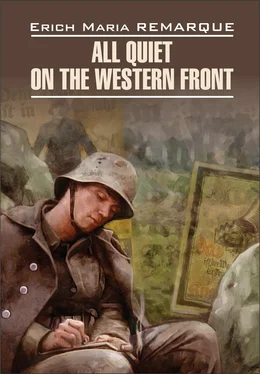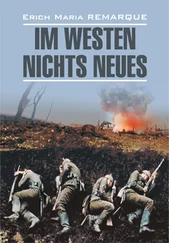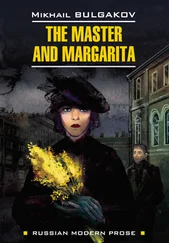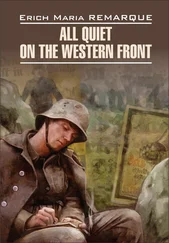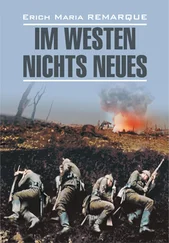The British artillery has been strengthened – that much we can hear immediately. Over to the right of the farm, there are at least four extra batteries of eight-inch guns, and they’ve put in trench mortars behind the poplar stump. As well as all that they’ve got a lot of those little French bastards with instantaneous fuses.
Morale is low. [160] morale is low – настроение у нас подавленное
Two hours after we reach our dugouts, our own artillery drops some shells on to our trenches. That’s the third time this month. If they were just making mistakes with the gun-laying, nobody would say anything; but it’s because the gun barrels are worn out; sometimes the shots are so unpredictable that they scatter shrapnel right into our sector. Tonight two of our men are wounded that way.
The front is a cage, and you have to wait nervously in it for whatever happens to you. Here we are under a criss-cross of shell trajectories [161] a criss-cross of shell trajectories – решеткой перекрещиваются траектории снарядов
, and we live in the tension of uncertainty. Chance is hovering over us. If there is a shot, all I can do is duck; I don’t know for sure and I can’t influence where it is going to come down.
It’s this awareness of chance that makes us so indifferent. A few months ago I was playing cards in a dugout; after a bit I got up and went out to go and talk to some men I knew in another dugout. When I got back, there was nothing left of the first one, a direct hit from a heavy shell had flattened it. I went back to the other dugout and got there just in time to help dig the men out. While I was away it had been buried.
It is simply a matter of chance whether I am hit or whether I go on living. I can be squashed flat in a bomb-proof dugout, and I can survive ten hours in the open under heavy barrage without a scratch. Every soldier owes the fact that he is still alive to a thousand lucky chances and nothing else. And every soldier believes in and trusts to chance.
We have to watch out for our bread. There are many more rats lately, ever since the trenches stopped being properly maintained.
Detering reckons that this is the clearest sign that we are in for it.
The rats here are especially repulsive, because they are so huge. They are the sort they call corpse-rats. They have horrible, evillooking, naked faces and the sight of their long, bare tails can make you feel sick.
They seem to be really hungry. They have had a go at practically everybody’s bread. Kropp has wrapped his in tarpaulin and put it under his head, but he can’t sleep because they run across his face to try and get at it. Detering tried to outwit them; he fixed a thin wire to the ceding and hooked the bundle with his bread on to it. During the night he puts on his flashlight and sees the wire swinging backwards and forwards. Riding on his bread there is a great fat rat.
In the end we decide that something has to be done. Carefully we cut off the pieces of bread that have been gnawed by the rats; we can’t throw the bread away, of course, or we would have nothing to eat tomorrow.
We put the bits we have cut off all together in the middle of the floor. Everyone grabs a spade and gets ready to hit out. Detering, Kropp and Kat have their flashlights ready.
After a few minutes we hear the first scuffles and scurrying. It gets louder, now it is the sound of lots of little feet. Then the lamps come on and we all lay into the dark mass, which breaks up. The results are good. We shovel what is left of the rats over the edge of the trench and lie in wait again.
It works a few more times. By then the beasts have realized, or they have smelt the blood. No more come. All the same, they have taken what is left of the scraps of bread by the morning.
In one of the adjacent sectors the rats attacked two big cats and a dog, bit them to death and ate them.
The next day we are issued with Edam cheese. Every man gets almost a quarter of a cheese. This is fine in one way, because Edam tastes good – but bad in another, because for us these thick red balls of cheese have always been a sure sign that we are in for a hell of a battering. Our suspicions grow when we are given an issue of liquor. We drink it, but it doesn’t make us feel any better.
During the day we have competitions about who can shoot the most rats, and we lounge around. Supplies of cartridges and of hand-grenades are increased. We check the bayonets ourselves. The reason for this is that you sometimes find bayonets that are saw-toothed along the blunt edge. Anybody caught by the enemy with one of those out there has had it. In the sector next to ours some men from our side were found afterwards with their noses sawn off by these bayonets, and their eyes poked out. Then their mouths had been stuffed with sawdust so that they suffocated.
A few recruits have weapons like that; we get rid of them and get them different ones.
In any case, the bayonet isn’t as important as it used to be. It’s more usual now to go into the attack with hand-grenades and your entrenching tool. The sharpened spade is a lighter and more versatile weapon – not only can you get a man under the chin, but more to the point you can strike a blow with a lot more force behind it; that’s especially true if you can bring it down diagonally between the neck and the shoulder, because then you can split down as far as the chest. When you put a bayonet in, it can stick, and you have to give the other man a hefty kick in the guts to get it out, and in the meantime you might easily have copped it yourself. Besides, quite often it snaps off.
At night gas gets blown across at us. We are expecting the attack and lie with our gas-masks handy, ready to tear them out as soon as we see the first shadow of a cloud.
The grey light of morning comes, but nothing happens. There is just that continuous and nerve-wracking rolling on the other side, trains, more trains, trucks and more trucks – what is all the concentration for? Our own artillery keeps on sending shells across, but it doesn’t stop, it doesn’t stop…
Our faces are tired and we stare past one another. ‘It’ll be just like it was on the Somme, it finished up with seven days and nights unbroken shelling,’ says Kat gloomily. He isn’t making jokes any more, and that’s bad. Kat is an old sweat and he can sense these things. Only Tjaden is happy about the extra rations and the rum; he even reckons that we might make it back without being fired on, that maybe nothing will happen.
It almost looks as if it could be like that. One day goes past after another. At night I sit in a forward sap on sentry duty, listening. Rockets and Verey lights go up and come down over my head. I am watchful and tense, my heart is pounding. Time and again I look at the luminous dial of my watch; the hands don’t seem to want to move. Sleep is heavy on my eyelids, I wriggle my toes in my boots to stay awake. Nothing happens, and then my relief comes up – there was nothing but that constant rolling over there. Gradually we calm down, and play cards all the time. Maybe we’ll be lucky, after all.
During the day the sky is full of observation balloons. Word gets around that they are going to bring in tanks over on the other side when they attack, and fighter aircraft. We are less interested in that news, though, than what we hear about the new flame-throwers.
In the middle of the night we wake up. The ground is rumbling, there is a heavy bombardment going on above us. We huddle into the corners. We can pick out shells of pretty well every calibre.
We all grab hold of our kit, and keep on checking that it is there. The dugout shakes, and the night is all roars and flashes. We look at each other in the moments of light, and shake our heads, our faces pale and our lips pressed tight.
Читать дальше
Конец ознакомительного отрывка
Купить книгу
